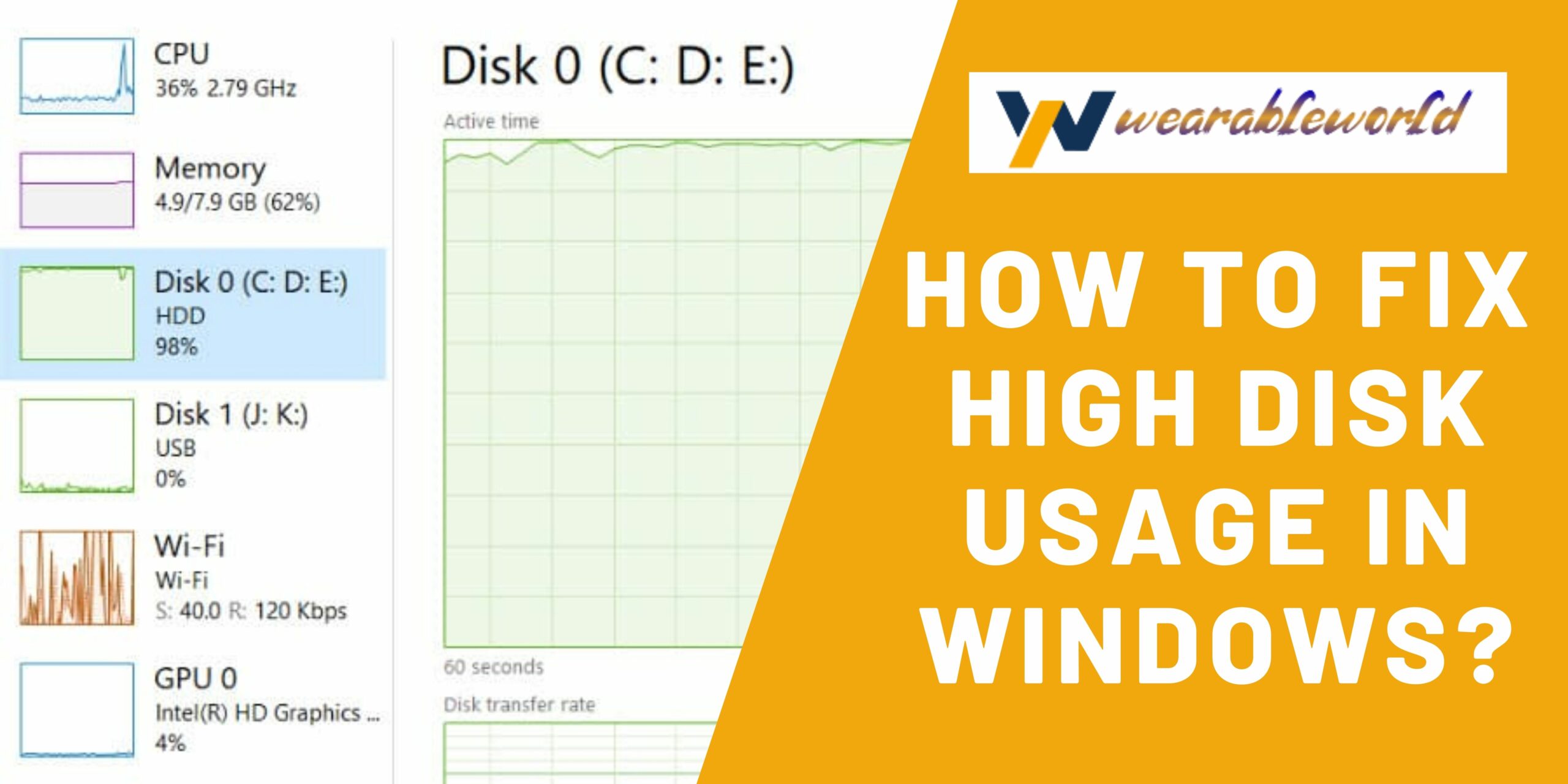Windows 10 and Windows 8.1 offer a streamlined user interface and a range of features that make them more user-friendly and efficient than previous versions of Windows. Windows 10 also introduces a new feature called “Windows as a Service,” which means that updates and new features are released regularly and without long intervals between updates. This makes it easier for users to stay current with the latest features and security updates. However, as Windows 10 is still a new operating system, there may be some unexpected issues that arise. In this blog post, we will explore the different ways in which Windows 10 can use disk space and how to reduce disk usage.
Windows : High Disk Usage Fix
Windows like most software applications can be very resource hungry. This can often lead to your computer running slowly or even becoming unresponsive. In some cases, this high disk usage might be caused by conflicts or issues with your operating system. However, there are a number of ways you can fix high disk usage on your Windows computer without having to resort to using third-party software. Let’s take a look at some of the methods you can use to fix high disk usage on your Windows computer.
First and foremost, you should make sure that you have the latest updates and security patches installed on your computer. This will help to prevent any conflicts or issues that might be causing your computer to use more resources.
Another common cause of high disk usage on Windows computers is the poor hardware configuration. Make sure that your computer has the latest hardware and software specs, and that all of your hardware is properly configured.
Finally, if you are experiencing high disk usage on your computer, it is often a good idea to clean up your files and folders. This can help to reduce the amount of data that is being stored on your computer and thereby reduce the amount of disk space that is used.
If you are still experiencing high disk usage on your Windows computer, it may be a good idea to consider switching to a new operating system or adopting a more efficient use of your computer’s hardware. However, these solutions are not always guaranteed to work, and
How to Fix High Disk Usage in Windows
If you are experiencing high disk usage on your Windows computer, there are a few things you can do to troubleshoot and fix the issue.
First, make sure you have enough free space on your hard drive. If you are experiencing high disk usage, it is likely that you are running out of space on your hard drive. You can check your disk usage by going to “Disk Management” in your “System Tools” folder, and then selecting the “Free” tab. You should make sure that your drive has at least 20% free space.
Next, make sure that you are not running out of memory on your computer. If you are experiencing high disk usage, it is likely that your computer is running out of memory. You can check your memory usage by going to “System Tools” in your “System” folder, and then selecting the “Performance” tab. You should make sure that your computer has at least 4GB of RAM.
If you are still experiencing high disk usage, you may need to disable certain applications or services. You can do this by going to “Windows Options”, and then selecting the “Desktop and Screen Saver” tab. You can then disable specific applications or services by selecting them from the “Programs” list.
If you are still experiencing high disk usage, you may need to reformat
What Causes High Disk Usage in Windows
Disk usage in Windows is a pretty straightforward metric. It tracks how much storage space is used on your computer’s hard drive. Disk usage can be high if your computer has a lot of files and folders stored on it, or if you have a lot of programs installed.
There are a few things you can do to help reduce your disk usage. First, make sure you have the right software installed. If you’re using a Windows operating system, you probably have a program like Windows Update or Windows Security installed. These programs need to access your computer’s hard drive to update or protect your computer. If you’re not using these programs, you can uninstall them by clicking on the “X” in the upper-left corner of their icon.
Second, delete unnecessary files. If you don’t use a file, delete it. If you can’t remember where you put it, search for it using Windows File Search. If you have a lot of files, it can be tough to find the one you need. You can also try using a file manager like Windows Explorer to organize your files.
Finally, make sure you have enough memory installed. This isn’t always necessary, but if you have a lot of programs running at the same time, your computer may need more memory to run them.
How to Prevent High Disk Usage in Windows
There are a few things you can do to help prevent your Windows computer from using a lot of disk space.
One thing you can do is to keep your computer clean. If you have a lot of files that you don’t use often, you can delete them to free up space on your hard drive.
Another thing you can do is to use Windows 11’s Disk Space management features. These features can help you see which files are taking up the most space on your hard drive, and help you delete or move them to free up space.
If you’re having trouble keeping your computer clean or managing its disk space, please contact your IT administrator or Windows support team for assistance.
Tips to Fix High Disk Usage in Windows
There is no one-size-fits-all answer to reducing disk usage on Windows, as the amount of data and files on your computer will vary depending on your configuration and usage. However, there are a few simple tips that can help reduce disk usage on Windows:
1. Keep your files organized. Groups of related files into folders, and place only the files you need in those folders. This will help to keep your files more compact, and reduce the amount of space required to store them.
2. Use Windows tools to optimize your files. Windows includes a number of built-in tools to help you optimize the performance of your files and folders. For example, you can use the File Explorer search bar to find and delete unnecessary files, or the Disk Cleanup utility to free up space on your hard drive.
3. Disable unneeded features. Some features of Windows can be unneeded, and can use up disk space and reduce the performance of your computer. For example, you can disable the Windows features that are used to index your files and provide quick access to them.
4. Turn off automatic updates. Some updates to Windows can be automatically downloaded and installed, without your consent or knowledge. These updates can often be large, and can use up disk space and reduce the performance of your computer.
5. Use Windows 10 storage options. Windows 10 includes a number of storage options that can be used to store your files. For example
Conclusion
Windows 11 uses more disk space than previous versions of Windows. You can reduce the amount of disk space used by Windows by organizing your files and folders, using compression software, and deleting unnecessary files.



